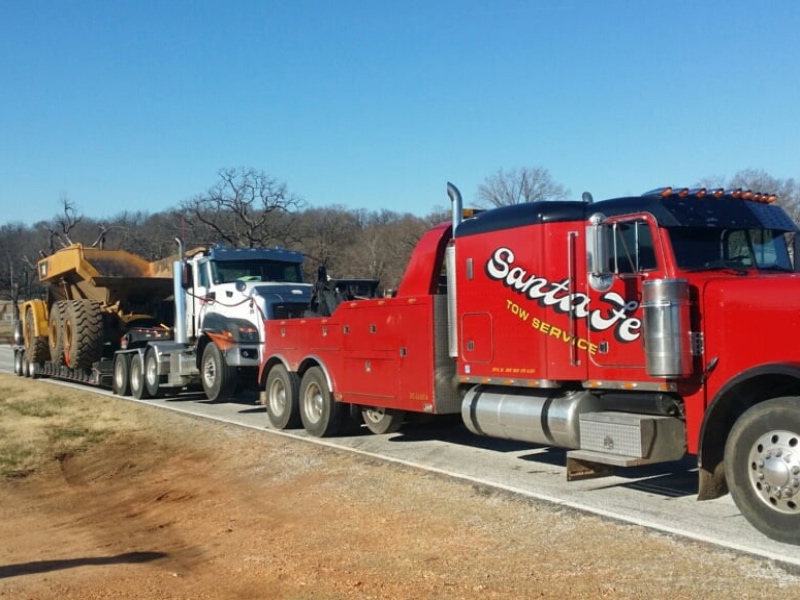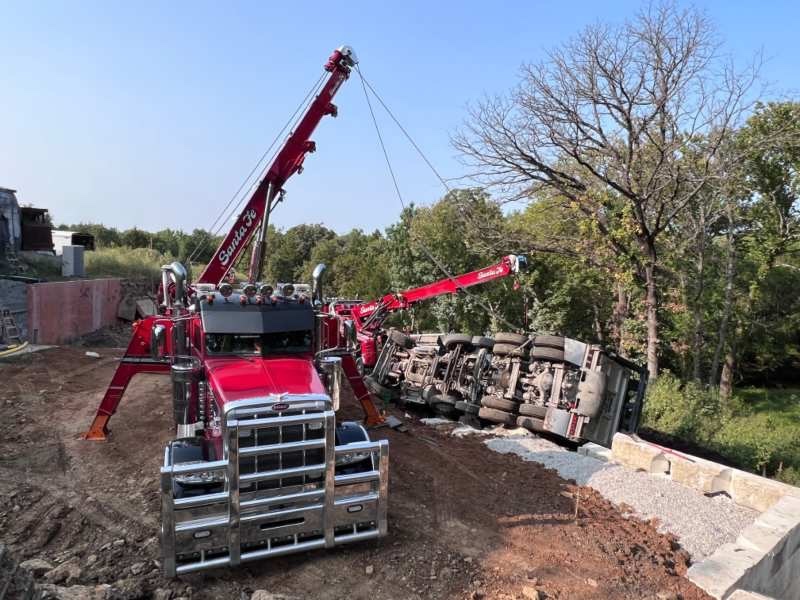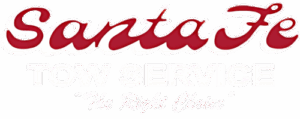Know Before You Tow
Towing might look simple: hook it up and hit the road, right? Not quite. At Santa Fe Tow Service, we’ve seen firsthand how skipping over towing capacity numbers can go sideways fast. Whether it’s a weekend trailer haul or moving heavy machinery, towing capacity tells us the maximum weight a vehicle can safely pull. Pushing past that number strains the vehicle, opening the door to mechanical failure, dangerous driving conditions, and legal trouble. That’s why we always check towing capacity before every Overland Park towing job we undertake.

What Towing Capacity Actually Includes
People might confuse curb weight, payload, and towing capacity. So here’s a quick breakdown: Curb weight is what your vehicle weighs with fluids but no passengers. Payload is everything you add, like passengers, luggage, gear. Towing capacity? That’s the max your vehicle can handle when pulling a trailer.
Manufacturers factor in engine strength, suspension, transmission, and braking systems to calculate this number. Towing more than your vehicle’s rated capacity isn’t just hard on your truck, it can mess up your warranty or lead to insurance denial after an accident. Knowing your limits is smarter than learning them the hard way.
It’s Not Just About Power
Just because your truck has a powerful engine doesn’t mean it’s built for heavy towing. Suspension, cooling systems, and even frame strength all play a role. We’ve seen trucks with strong engines falter because the frame couldn’t handle the load.
Your Brakes Matter Too
Braking is one of the most critical—and most overlooked—parts of towing. A heavier load means longer stopping distances. If you exceed your towing capacity, your brakes may not stop the trailer fast enough, especially in wet or icy conditions. That’s when things can spiral. At Santa Fe Tow Service, we always stress towing capacity because it’s tied directly to your ability to control your vehicle when it matters most.
Trailer Type Changes the Game
Not all trailers are created equal. A flatbed with construction gear doesn’t behave the same as a camper. Even within towing capacity, weight distribution affects how the vehicle handles. That’s another reason why towing capacity is crucial. It gives us a safe starting point to factor in trailer type, balance, and road conditions. That way, we can complete your Overland Park towing job safely.
It Impacts Insurance and Liability
Go beyond your limit, and you might find your insurance company stepping back. In the event of a crash, investigators will look at your load. If it’s too heavy, they can claim negligence. That’s a legal mess no one wants. We stay within towing capacity because it keeps us covered. And keeps you protected.

Santa Fe Tow Service: Your Overland Park Towing Experts
Trust our experts at Santa Fe Tow Service: towing capacity is never up for debate. Every Overland Park towing job starts with the same question: what’s the load, and what’s the limit? From light-duty roadside help to heavy-haul transport, we’ve got the vehicles, the knowledge, and the crew to do it right.
When it comes to Overland Park towing, towing capacity is part of every decision we make. We reference it six different ways in our process, from assigning the right truck to securing the load. No shortcuts. No second guesses. Just experienced pros doing the Overland Park towing job by the numbers.
So if you need Overland Park towing done right, call Santa Fe Tow Service. We’re serious about numbers. Especially the one that keeps every tow safe: towing capacity.

